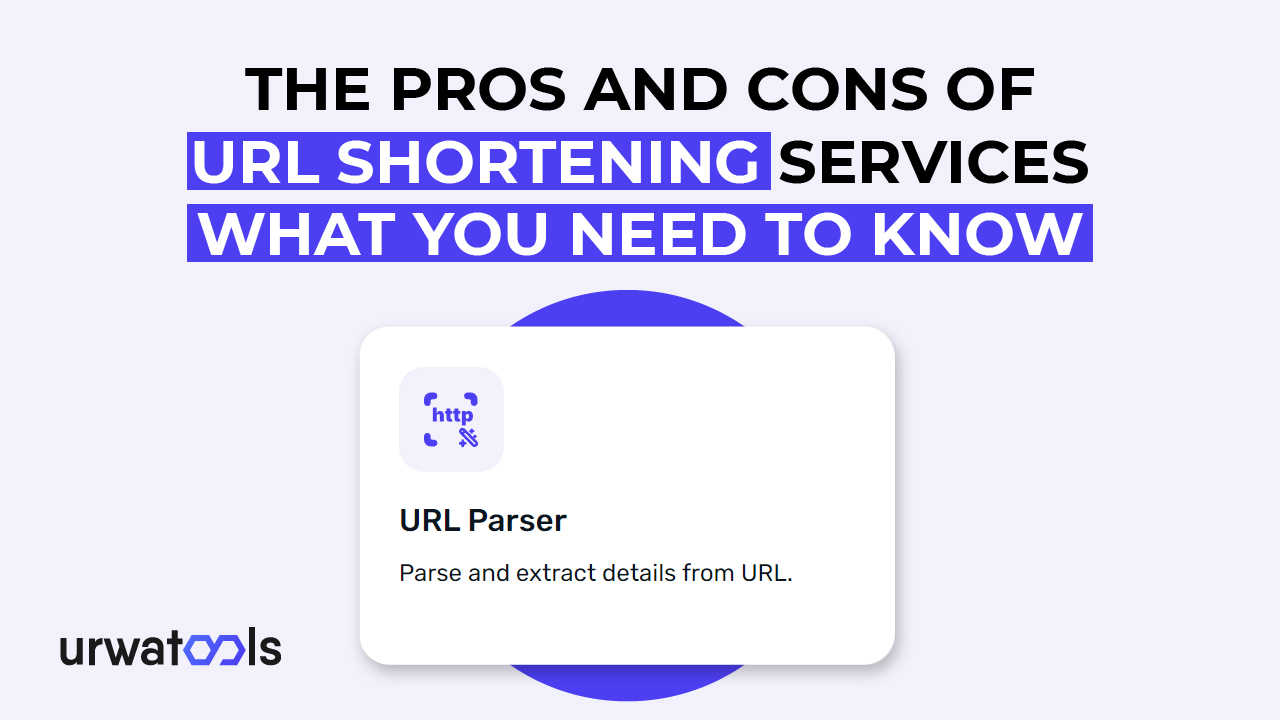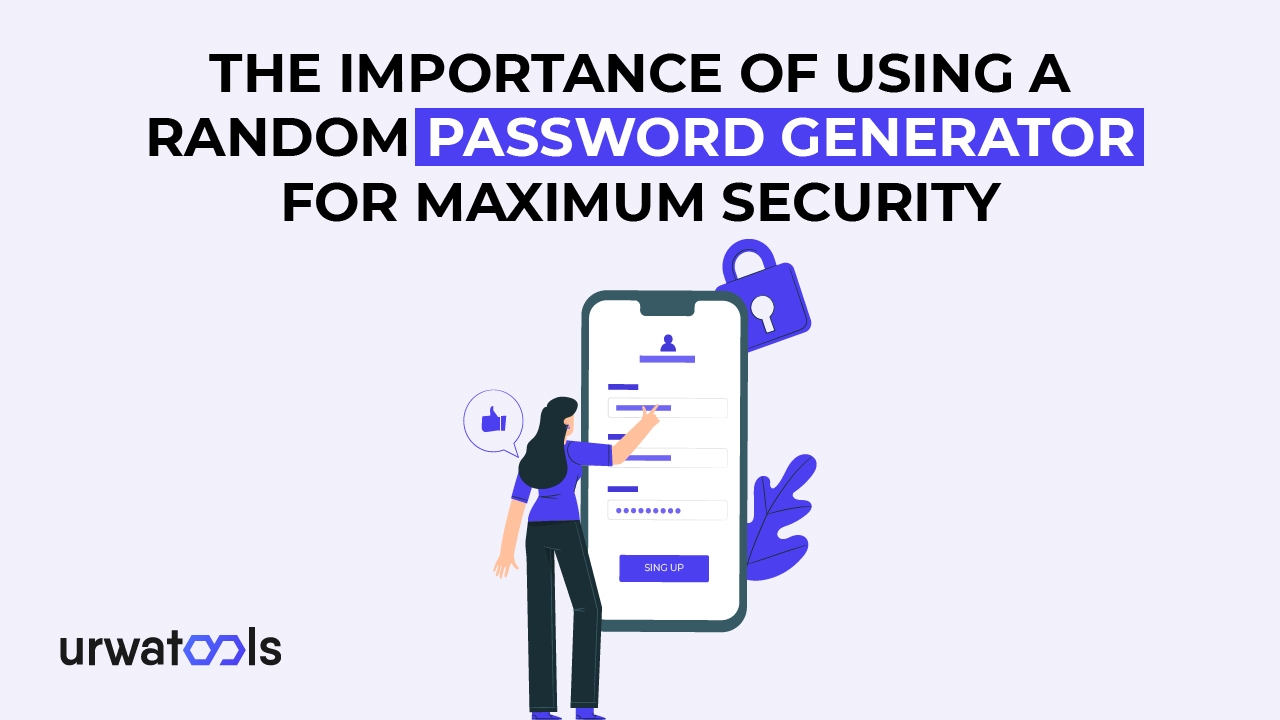The Pros and Cons of URL Shortening Services: What You Need to Know
URL shortening services have been around for a while and are growing more popular. These services enable users to generate shorter, more easily shared links for social media postings, email messages, and other communication. While these services appear to be handy, they may have significant downsides. This post will look at the benefits and drawbacks of URL-shortening services and some recommendations for using them securely and successfully.
What Are URL Shortening Services?
URL shortening services are websites or applications that convert long URLs into shorter, more manageable links. These services are typically used to share links on social media platforms, where character limits are strict, but they can also be used in email messages, blog posts, and other types of online content. Shortening a URL usually involves redirecting the original URL to a new, shorter URL that is easier to share and remember.
The Pros of Using URL Shortening Services:
Increased Sharing Potential
One of the most significant advantages of URL shortening services is allowing users to share links more efficiently and effectively. Shorter links take up less space in social media posts and other forms of communication, allowing users to include more content and information. Additionally, many URL shortening services provide features like custom domains and branded links that can help increase brand recognition and improve click-through rates.
Better Tracking and Analytics
Another advantage of adopting URL shortening services is that they provide better tracking and analytics than ordinary URLs. Many of these platforms include analytics tools that allow customers to measure clicks, analyze engagement, and collect other useful information. This data may be utilized to refine marketing strategy, measure campaign success, and identify areas for improvement.
Easy-to-Remember Links
Shortened URLs are typically simpler to remember than lengthier URLs, which may be helpful in various scenarios. If you share a link with someone verbally, a shorter URL will be faster to place and enter later. Furthermore, many URL shortening services enable users to construct personalized, easy-to-remember URLs that may be utilized to increase brand awareness and improve user experience.
Reduced Trustworthiness
One of the most severe disadvantages of URL shortening services is that they undermine the reliability of shared links. Many individuals are reluctant to click on shortened links since they are frequently exploited in phishing schemes and other dangerous actions. Furthermore, because the URL is concealed behind the abbreviated link, users may require assistance determining where a link links before clicking on it, which may be an issue for some users.
Link Rot and Broken Links
Another potential issue with URL shortening services is that they can lead to link rot and broken links over time. If the service goes out of business or changes its policies, the shortened links may no longer work, leading to frustrating experiences for users who click on them. Additionally, if the original link changes or is removed, the shortened link may no longer be valid, leading to a dead end for users.
Security and Privacy Risks
Finally, URL shortening services might risk users’ security and privacy. Because the original link is concealed beneath the abbreviated tie, determining where it leads before clicking might be tricky. Users who are concerned about Trojan horses, phishing schemes, or other security issues may be affected. Some URL shortening services may gather or share user data with third-party advertising, which may worry users who value their privacy.
Tips for Using URL Shortening Services Safely and Effectively
While URL shortening services may have particular problems, there are methods to utilize them securely and successfully. Here are some pointers to remember:
• Choose a reputable URL shortening service with a good track record of providing reliable and secure links.
• Be cautious when clicking on shortened links from unknown sources. If you’re unsure where a link leads, use a URL expander tool to reveal the original URL before clicking.
• Avoid URL shortening services for sensitive or confidential information, as these links may be more vulnerable to security threats.
• Keep track of the links you share and check them to ensure they are still working. If a link is broken or invalid, update or remove it from your content.
• Consider using alternative URL shortening services, such as custom domains or branded links, which can provide similar benefits without potential drawbacks.
Alternatives to URL Shortening Services
• If you're not comfortable using URL shortening services, there are several alternatives you can consider. These include:
• Use custom domains or branded links to create shorter, easy-to-remember links unique to your brand.
• Use link shorteners from social media platforms or other services you trust.
• Using URL expander tools to reveal the original URL before clicking on shortened links.
The Disadvantages of URL Shortening Services
I. Potential Loss of Branding
URL shortening services can lead to branding loss. When you use a URL shortening service, the abbreviated link usually contains the provider's domain rather than your own. Loss of branding might draw attention away from your brand and make it less recognizable to your target demographic. However, some URL shortening providers enable you to use your domain, which mitigates this drawback.
II. Reliance on Third-Party
URL shortening services depend on third-party providers to keep your shortened URLs functioning and available. If the service breaks or is taken down, broken links disrupt your marketing efforts or user experience. Choosing reliable suppliers with a track record of dependability is critical to reducing service disruptions.
III. Concerns about security
URL shortening services may lead to security problems. Cybercriminals can use these services to disguise harmful links or phishing efforts. Users may be hesitant to click on shortened links owing to worries about the validity of the destination or potential security risks. While respectable URL-shortening providers use security precautions, it is critical to be watchful and careful when clicking on short URLs from unknown sources.
IV. Link Longevity and Maintenance
URL shortening services may reduce link lifespan. Some services have shorter expiration periods, after which they become inactive. Maintenance might make establishing a long-term internet presence for your material more accessible. Furthermore, when your marketing efforts change and content upgrades are necessary, managing and updating many shortened links may become tedious and time-consuming.
V. Trustworthiness of the link.
Shortened links might make users question their integrity. Users may hesitate to click on shortened links from unknown sources due to their condensed character, as the destination URL is not immediately apparent. Building confidence with your audience may necessitate further efforts to give context and guarantees about the link's safety and usefulness.
Despite these drawbacks, URL-shortening services can benefit shareability, tracking, and user experience considerably. Limit the possible hazards connected with URL-shortening services and maximize their benefits by knowing and resolving these downsides, such as using trustworthy providers, emphasizing transparency, and implementing suitable security measures.
Alternative URL Shortening Services on the Market
Introduction URL shortening services have grown in popularity because of their capacity to compress large URLs into shorter, more manageable connections. In this part, we'll look at some of the most popular URL-shortening services on the market.
I. Bit.ly
Bit.ly is a popular URL-shortening service used by individuals and corporations. It has an easy-to-use interface and a variety of functions to improve connection management and tracking. Bit.ly allows users to personalize shortened links and measure link success using click-through rates, geographical data, and referral sources. It also integrates with social media platforms, allowing sharing across various channels.
II. TinyURL
TinyURL is another well-known URL shortening service that has operated for a long time. Its simple and uncomplicated UI allows users to produce shortened URLs rapidly. While TinyURL does not offer comprehensive analytics options like other services, it makes up for it with dependability and stability. Users can trust TinyURL to redirect their URLs regularly and without interruption.
III. Rebrandly
Rebrandly is a URL-shortening service that specializes in branding. It enables customers to build shortened links with unique domains, ensuring brand consistency throughout all marketing activities. Rebrandly provides several customization options, including changing the destination URL, adding tracking pixels, and integrating with other marketing tools. It gives precise information to optimize marketing campaigns and assess link performance.
IV. Ow.ly
Ow.ly is a URL shortening service part of Hootsuite's social media management package. It integrates seamlessly with the Hootsuite platform, allowing users to create and publish shortened links from their social media scheduling routine. Ow.ly offers rudimentary metrics to measure link clicks. However, its greatest strength is its integration with Hootsuite, which makes it an appealing alternative for social media marketers.
V. Tiny.cc
Tiny.cc is a simple URL-shortening service with link management and tracking capabilities. It lets users add personalized aliases to their shortened URLs, making them more memorable and brand-friendly. Tiny.cc offers basic analytics for tracking link clicks, referrers, and geographical information. It also has a bookmarklet utility, making generating shortened links directly from web browsers easier.
Factors to Consider Before Using a URL Shortening Service
I. Customization Options
Before deciding on a URL shortening provider, consider how customizable it is. Customization allows you to tailor shortened links to your branding requirements. Look for services that let you use your custom domain or change the link alias. Customization options ensure the shortened URLs are consistent with your brand and fit your internet presence.
II. Analytics and Tracking Features
Another critical thing to consider is the availability of analytics and tracking options in the URL shortening provider. Analytics, such as click-through rates, regional data, and referral sources, provide vital insights into link success. These indicators allow you to assess the efficacy of your marketing activities and make data-driven decisions to improve your tactics. Choose a solution that offers extensive and easy-to-use analytics capabilities.
III. Reputation and reliability
It is critical to evaluate the reputation and dependability of a URL-shortening service while choosing one. Look for providers with a track record of reliability and uptime. Investigate customer reviews and testimonials to learn about other users' experiences. A dependable solution guarantees that your shortened links continue functioning without interruption, preventing broken links. Broken links can negatively influence user experience and campaign efficacy.
IV. Security and Link Longevity
When using a URL shortening service, security is a critical consideration. Ascertain that the service takes reasonable precautions to prevent malicious activity and link misuse. To protect users from risks, look for services that include link screening and malware detection. Consider the lifetime of the service relationships. Because certain URL shortening providers may limit link expiration, choosing a service that assures long-term link availability is critical.
V. Integration Capabilities
Consider the URL shortening service's integration possibilities with other marketing and analytics tools and platforms. Seamless integration enables smoother operations and saves time and effort. Look for services that can be integrated with popular platforms such as social media management software, email marketing software, and analytics platforms. Integration capabilities guarantee that the reduced links will fit seamlessly into your existing marketing environment.
VI. Pricing and Additional Features
Finally, consider the cost structure and other options the URL shortening provider provides. Some services give free plans with limited capabilities, while others charge for premium plans with expanded functionality. Find the right balance between your budget and needs. Consider whether extra functionality like link editing, link expiration settings, custom redirection, or API access may be helpful for your unique requirements.
Best Practices for URL Shortening Services
I. Use reputable providers
It is critical to select credible URL-shortening services while using them. Choose well-established and trustworthy providers with a track record of dependability and security. Reputable suppliers assure the reliability and long-term viability of your shortened links, reducing the danger of broken or expired links, which can negatively influence user experience and campaign results.
II. Put Shortened Links to the Test
Testing shortened URLs before distributing them is critical to ensure they work correctly. Click on the shortened links on various devices and browsers to ensure they redirect to the correct location. Testing identifies any problems or faults, allowing you to fix them before sharing the links with your target audience.
III. Keep Backups of the Original URLs:
Keeping backups of the original lengthy URLs you've reduced is an excellent idea. Keeping a backup offers a reference if you need to recover or amend the original link. Keeping backups ensures you retain control over your material and may make changes as needed.
IV. Track Link Performance
Use the URL shortening service's statistics to track your shortened URLs' performance. Keep track of critical data like click-throughs, conversions, and engagement. Monitoring link performance helps you assess your marketing activities' efficacy, discover development areas, and make data-driven decisions to optimize your plans.
V. Educate Users on the Destination
When distributing shortened links, providing context and educating readers on the destination to which they will be rerouted is critical. Make it clear what the link's purpose is and what kind of material they may expect. Educating users help build trust with your target audience and guarantees they click on your shortened links.
VI. Review and Update Links Regularly
Review and evaluate the performance of your shortened links. Consider updating or removing underperforming or irrelevant links for more effective alternatives. Regularly monitoring and updating links ensures that your marketing and content stay current and relevant to your goals.
VII. Secure Your Account
Take precautions to protect your URL-shortening service account. Select a strong and unique password and enable any available security options, such as two-factor authentication. Securing your account keeps your short links safe from unauthorized access or exploitation.
VIII. Follow the Terms of Service and the Guidelines.
Follow the terms of service and rules of your URL shortening provider. Each service may have standards and limitations regarding link sharing, content types, and usage. Comply with these rules to ensure compliance and a strong relationship with the service provider. like valuable
Conclusion
URL shortening services might be helpful for internet users needing to distribute links rapidly and effectively. However, they have certain possible downsides that consumers should be aware of. You may make the most of URL-shortening services while minimizing dangers by knowing the advantages and downsides of utilizing them and following some easy suggestions for using them securely and efficiently.







